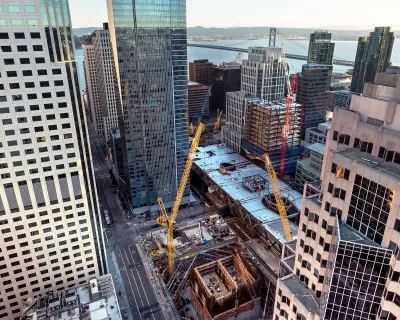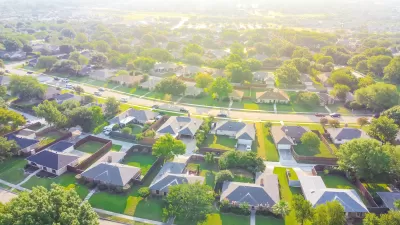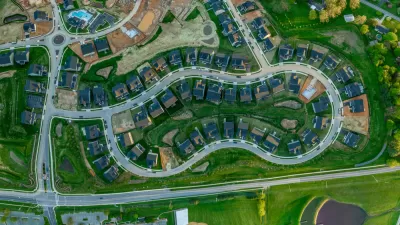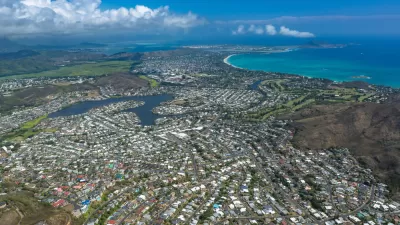Experts blame high land and construction costs and restrictive regulations for San Francisco’s dismal rate of housing construction, which lags behind other fast-growing cities like Austin and Seattle.

San Francisco’s housing crisis is only getting worse. “Exacerbated by the influx of highly compensated tech workers, housing demand has far outstripped supply, prices have skyrocketed and many who work here have been forced to live elsewhere,” writes Adriana Rezal in the San Francisco Chronicle.
Yet the city’s rate of housing construction is far behind that of other growing tech hubs like Austin and Seattle, both of which “approved construction for more than three times as many housing units per person as San Francisco since 2015.”
The article points out that both Seattle and Austin have more space to grow than San Francisco, but San Francisco also has higher construction costs and stricter regulations. “While San Francisco and Austin both had similar population sizes in 2010, with about 800,000 people, Austin permitted over 133,000 units since 2010, while San Francisco permitted only 37,500.” However, “Swift housing production does not guarantee housing costs won’t rise,” as illustrated by Austin’s high housing costs despite its rapid rate of construction.
To alleviate the high costs of housing, experts suggests more public support for missing middle housing, accessory dwelling units, land banking, and other affordable housing solutions. “According to [Joseph Gyourko, a professor of real estate and finance at the Wharton School of the University of Pennsylvania], the key to improving San Francisco’s housing issues is to focus on creating more affordable housing because these units will supply more of the demand than continuing to build units that some residents cannot afford.”
FULL STORY: Here's why Austin and Seattle are building way more housing than San Francisco

Maui's Vacation Rental Debate Turns Ugly
Verbal attacks, misinformation campaigns and fistfights plague a high-stakes debate to convert thousands of vacation rentals into long-term housing.

Planetizen Federal Action Tracker
A weekly monitor of how Trump’s orders and actions are impacting planners and planning in America.

Chicago’s Ghost Rails
Just beneath the surface of the modern city lie the remnants of its expansive early 20th-century streetcar system.

Bend, Oregon Zoning Reforms Prioritize Small-Scale Housing
The city altered its zoning code to allow multi-family housing and eliminated parking mandates citywide.

Amtrak Cutting Jobs, Funding to High-Speed Rail
The agency plans to cut 10 percent of its workforce and has confirmed it will not fund new high-speed rail projects.

LA Denies Basic Services to Unhoused Residents
The city has repeatedly failed to respond to requests for trash pickup at encampment sites, and eliminated a program that provided mobile showers and toilets.
Urban Design for Planners 1: Software Tools
This six-course series explores essential urban design concepts using open source software and equips planners with the tools they need to participate fully in the urban design process.
Planning for Universal Design
Learn the tools for implementing Universal Design in planning regulations.
planning NEXT
Appalachian Highlands Housing Partners
Mpact (founded as Rail~Volution)
City of Camden Redevelopment Agency
City of Astoria
City of Portland
City of Laramie





























